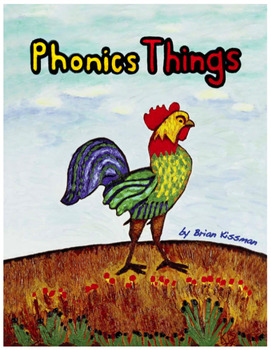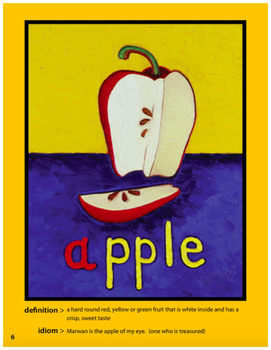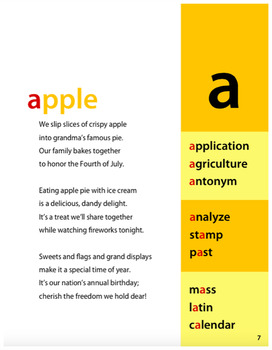Phonics Things - Learning to read through poetry and word lists
Brian Kissman
17 Followers
Brian Kissman
17 Followers
Description
Phonics Things is an innovative, engaging and entertaining literacy and learning method for preschoolers, elementary school students, and beyond, aimed at learning to read and closing the achievement gap by providing guidance and tools that make teaching easy for parents and teachers, and learning fun for students. The focus of Phonics Things is “learning to read”.
Phonics Things is a unique piece of children’s literature, but also a comprehensive learn to read book that incorporates poems, word lists, and illustrations to engage students in fun, entertaining, and indelible ways. It’s highly effective for:
• Early childhood and preschoolers
• Special needs learners, including dyslexic learners
• Struggling readers in middle school
• Learners of English as a second language
So how is Phonics Things different from other learn to read supplemental resources? It is both explicit and intentional at growing the fundamentals of reading:
1. Mastering Sounds
Reading to children and engaging them in conversation with new words make them aware of the sounds of the English language. This phonetic awareness is critically important to get them ready to read.
2. Matching Sounds to Letters
Phonics and decoding occur once children achieve phonetic awareness. In this first step, children learn to read by connecting sounds to letters or groups of letters to sound out words.
3. Reading with Fluency
Once children learn how to sound out words, they develop their ability to read with fluency and prosody, that is, accurately, quickly and with expression.
4. Reading Comprehension
At this stage, children grow their ability to make meaning: to read a text, process it, summarize what is explicit, and interpret what is implied.
5. Critical Thinking
The highest stage of reading is problem solving. Children learn to skillfully exercise thinking processes to deepen understanding, such as making connections, generating questions, visualizing, making inferences, gaining perspective and empathy, identifying cause and effect, analyzing and synthetizing, determining importance, and monitoring.
To order hardcopies of Phonics Things, visit learnonpoint.com!
Phonics Things is a unique piece of children’s literature, but also a comprehensive learn to read book that incorporates poems, word lists, and illustrations to engage students in fun, entertaining, and indelible ways. It’s highly effective for:
• Early childhood and preschoolers
• Special needs learners, including dyslexic learners
• Struggling readers in middle school
• Learners of English as a second language
So how is Phonics Things different from other learn to read supplemental resources? It is both explicit and intentional at growing the fundamentals of reading:
1. Mastering Sounds
Reading to children and engaging them in conversation with new words make them aware of the sounds of the English language. This phonetic awareness is critically important to get them ready to read.
2. Matching Sounds to Letters
Phonics and decoding occur once children achieve phonetic awareness. In this first step, children learn to read by connecting sounds to letters or groups of letters to sound out words.
3. Reading with Fluency
Once children learn how to sound out words, they develop their ability to read with fluency and prosody, that is, accurately, quickly and with expression.
4. Reading Comprehension
At this stage, children grow their ability to make meaning: to read a text, process it, summarize what is explicit, and interpret what is implied.
5. Critical Thinking
The highest stage of reading is problem solving. Children learn to skillfully exercise thinking processes to deepen understanding, such as making connections, generating questions, visualizing, making inferences, gaining perspective and empathy, identifying cause and effect, analyzing and synthetizing, determining importance, and monitoring.
To order hardcopies of Phonics Things, visit learnonpoint.com!
Total Pages
209 pages
Answer Key
N/A
Teaching Duration
N/A
Report this resource to TPT
Reported resources will be reviewed by our team. Report this resource to let us know if this resource violates TPT’s content guidelines.




